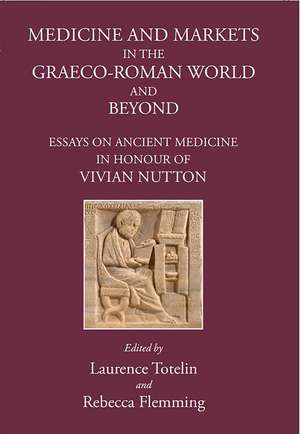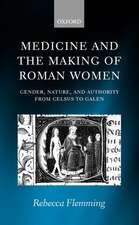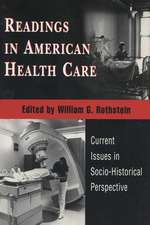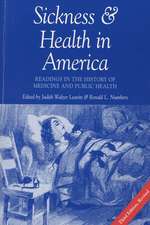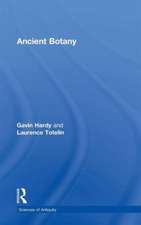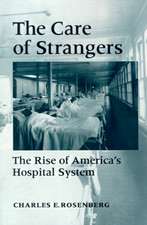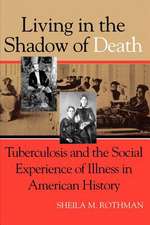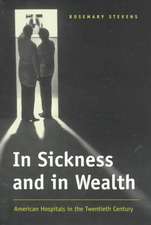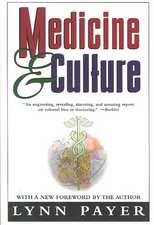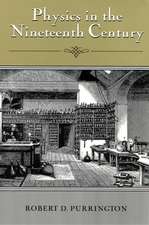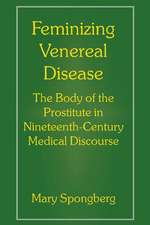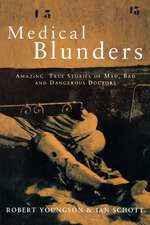Medicine and Markets: Essays on Ancient Medicine in honour of Vivian Nutton
Editat de Rebecca Flemming, Laurence Totelinen Limba Engleză Hardback – 30 ian 2020
Preț: 533.01 lei
Preț vechi: 561.07 lei
-5% Nou
Puncte Express: 800
Preț estimativ în valută:
101.99€ • 109.06$ • 85.04£
101.99€ • 109.06$ • 85.04£
Carte disponibilă
Livrare economică 27 martie-10 aprilie
Preluare comenzi: 021 569.72.76
Specificații
ISBN-13: 9781910589786
ISBN-10: 1910589780
Pagini: 250
Dimensiuni: 243 x 163 x 19 mm
Greutate: 0.33 kg
Editura: The Classical Press of Wales (UK)
Colecția Classical Press of Wales
Locul publicării:United Kingdom
ISBN-10: 1910589780
Pagini: 250
Dimensiuni: 243 x 163 x 19 mm
Greutate: 0.33 kg
Editura: The Classical Press of Wales (UK)
Colecția Classical Press of Wales
Locul publicării:United Kingdom
Notă biografică
Rebecca Flemming is Senior Lecturer in Ancient History in the Classics Faculty of the University of Cambridge, and a Fellow of Jesus College, UK. A specialist in the society and culture of the Roman Empire, she has published widely on classical medicine, gender and sexuality, both together and separately. Her monograph Medicine and the Making of Roman Women: Gender, Nature and Authority from Celsus to Galen came out from Oxford University Press in 2000; the volume she co-edited with Nick Hopwood and Lauren Kassell, Reproduction: Antiquity to the Present Day was published by Cambridge University Press in 2018.Laurence Totelin is Reader in Ancient History at Cardiff University, UK. She specialises in the history of Greek and Roman pharmacology, botany and gynaecology. Her works include Hippocratic Recipes: Oral and Written Transmission of Pharmacological Knowledge in Fifth- and Fourth-Century Greece (Brill, 2009) and, with botanist Gavin Hardy, Ancient Botany (Routledge, 2016). She is currently working on the trade in medicines in the first centuries of the Roman Empire, on which she is preparing the volume Retail Therapy (Routledge).
Cuprins
Acknowledgements List of contributors Abbreviations and sigla Introduction: Vivian Nutton and the rise of ancient medicine, Rebecca FlemmingPART I: Prices and Exchange1. The cost of health: rich and poor in imperial Rome, Véronique Boudon-Millot2. Healing correspondence: letters and remedy exchange in the Graeco-Roman world, Laurence M. V. Totelin3. Dioscorides on beavers, John Scarborough4. The cost of a baby: how much did it cost to hire a wet-nurse in Roman Egypt?, Antonio Ricciardetto and Danielle GourevitchPART II: Pluralism and Diversity5. A return to cases and the pluralism of ancient medical traditions, G.E.R. Lloyd6. Malaria, childbirth and the cult of Artemis, Elizabeth Craik7. Medicine, markets and movement in the Bronze Age Mediterranean: a Mycenaean healing deity at Hattusa-Bogazköy, Robert Arnott8. Antistius Medicus and the ides of March, Ann Ellis Hanson9. Notes on three Asclepiadean doctors, David Leith10. Hippocratic whispers: telling the story of the life of Hippocrates on the internet, Helen KingBibliography Bibliography of Vivian Nutton's works Index
Recenzii
This is an extremely diverse collection ... As a result, historians of medicine will find most, if not all, of the chapters diverting and thought-provoking.
It is certainly a new valuable acquisition in the field of the history of ancient medicine, showing that it was not only a matter of scientific theories and of practical techniques, but also a living part of the society, its economy, and its culture.
It is certainly a new valuable acquisition in the field of the history of ancient medicine, showing that it was not only a matter of scientific theories and of practical techniques, but also a living part of the society, its economy, and its culture.
